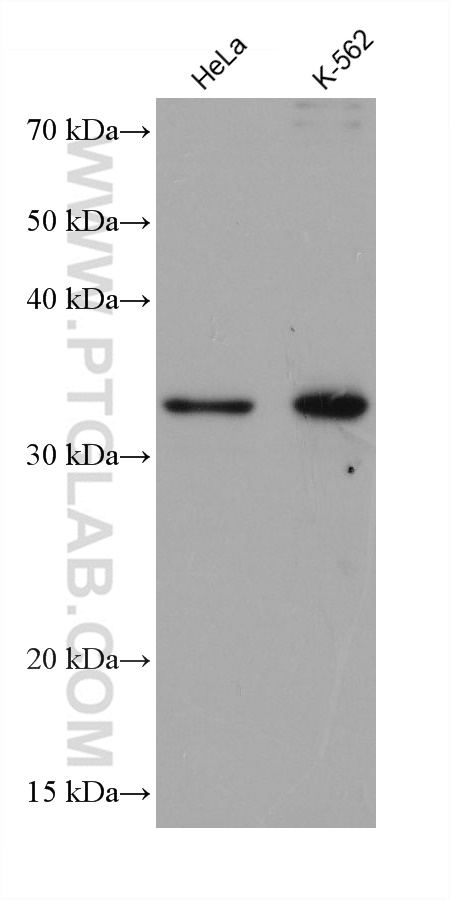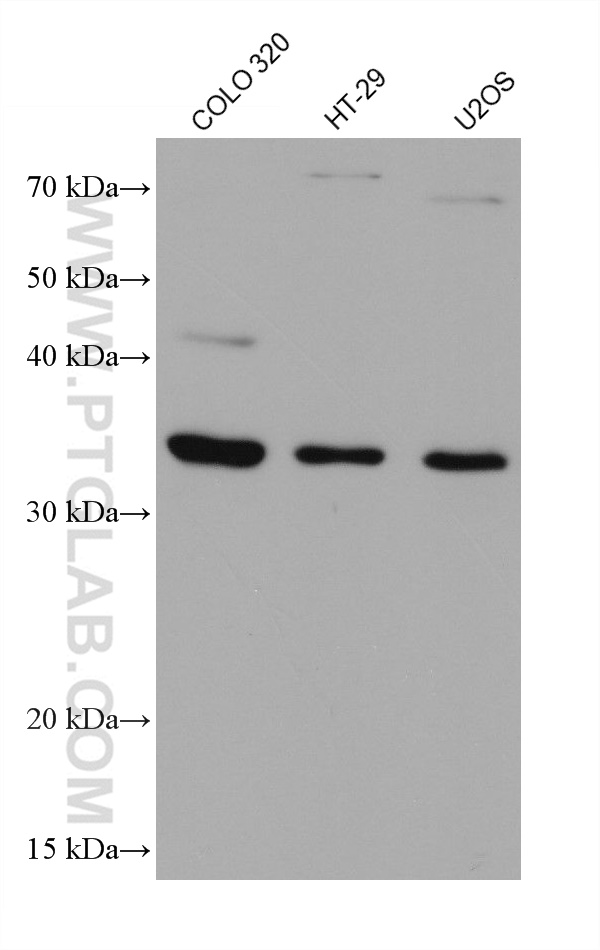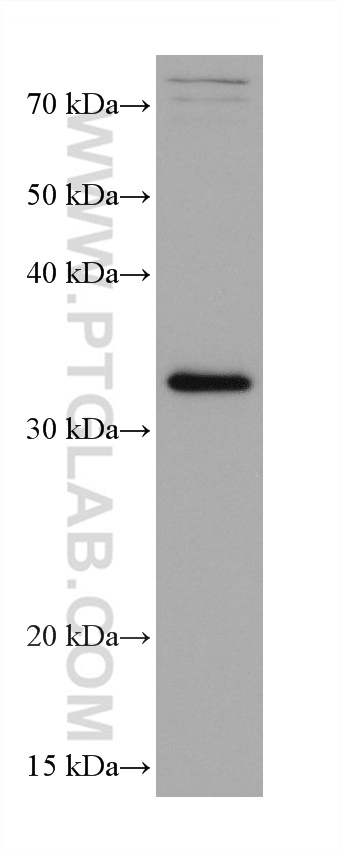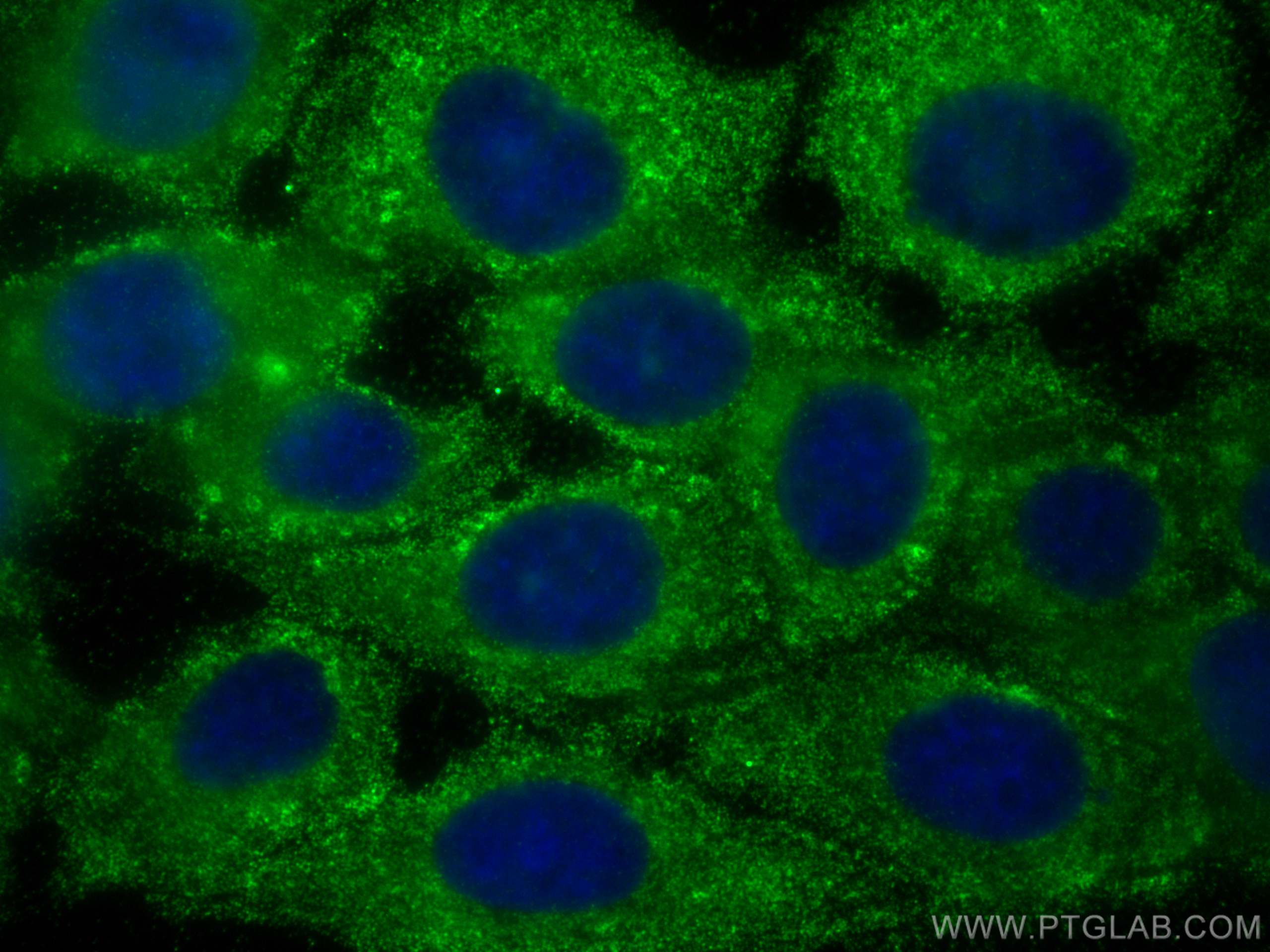验证数据展示
经过测试的应用
| Positive WB detected in | HeLa cells, COLO 320 cells, HepG2 cells, HT-29 cells, U2OS cells, K-562 cells |
| Positive IF/ICC detected in | A431 cells |
推荐稀释比
| 应用 | 推荐稀释比 |
|---|---|
| Western Blot (WB) | WB : 1:2000-1:10000 |
| Immunofluorescence (IF)/ICC | IF/ICC : 1:400-1:1600 |
| It is recommended that this reagent should be titrated in each testing system to obtain optimal results. | |
| Sample-dependent, Check data in validation data gallery. | |
产品信息
68153-1-Ig targets AIDA in WB, IF/ICC, ELISA applications and shows reactivity with Human samples.
| 经测试应用 | WB, IF/ICC, ELISA Application Description |
| 经测试反应性 | Human |
| 免疫原 | AIDA fusion protein Ag20597 种属同源性预测 |
| 宿主/亚型 | Mouse / IgG1 |
| 抗体类别 | Monoclonal |
| 产品类型 | Antibody |
| 全称 | axin interactor, dorsalization associated |
| 别名 | AIDA, C1orf80, FLJ12806, FLJ32421, RP11 378J18.7 |
| 计算分子量 | 306 aa, 35 kDa |
| 观测分子量 | 35 kDa |
| GenBank蛋白编号 | BC015535 |
| 基因名称 | AIDA |
| Gene ID (NCBI) | 64853 |
| RRID | AB_2923676 |
| 偶联类型 | Unconjugated |
| 形式 | Liquid |
| 纯化方式 | Protein G purification |
| UNIPROT ID | Q96BJ3 |
| 储存缓冲液 | PBS with 0.02% sodium azide and 50% glycerol pH 7.3. |
| 储存条件 | Store at -20°C. Stable for one year after shipment. Aliquoting is unnecessary for -20oC storage. |
背景介绍
AIDA, also named as C1orf80, acts as a ventralizing factor during embryogenesis. It inhibits axin-mediated JNK activation by binding axin and disrupting axin homodimerization. It's highest expression in the heart and skeletal muscle. AIDA has three isoforms with MW 35 kDa, 16 kDa and 26 kDa.
实验方案
| Product Specific Protocols | |
|---|---|
| WB protocol for AIDA antibody 68153-1-Ig | Download protocol |
| IF protocol for AIDA antibody 68153-1-Ig | Download protocol |
| Standard Protocols | |
|---|---|
| Click here to view our Standard Protocols |



